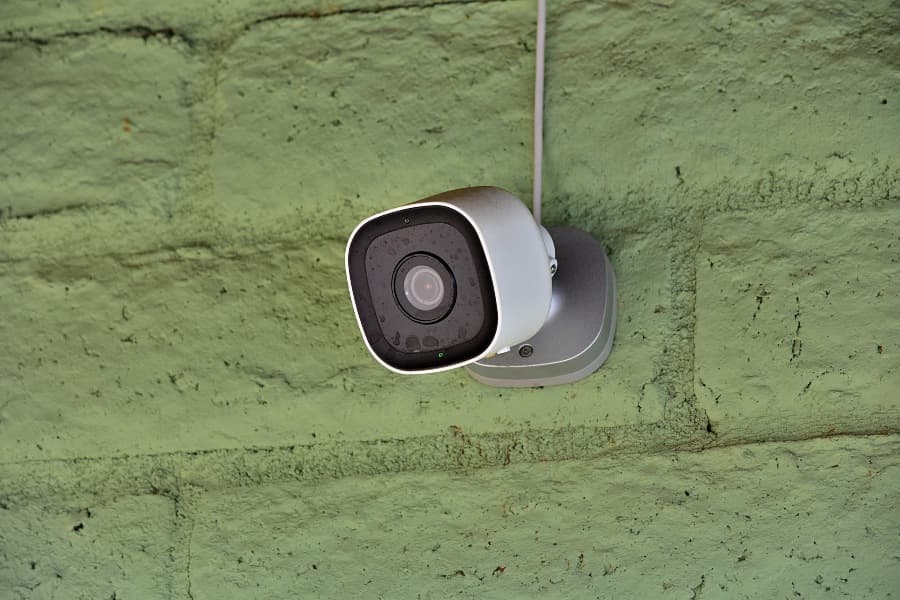
Troubleshooting Steps for Common Issues with Professional Security Camera Installations
CCTV systems are an integral part of modern security and surveillance, as they provide invaluable oversight in both domestic and commercial settings. However, just like most electronic systems, CCTV systems may also encounter issues.
Admittedly, most of these issues are pretty common and quite easy to fix, so in this article, we’ll go over a couple of things you can try yourself before calling a CCTV tech—most techs are actually grateful if you rule out all the minor issues in their stead.
Image Quality Issues
The primary purpose of a CCTV system is to provide a clear image that can be used for security purposes, and poor image quality defeats this purpose. Blurry images are a common issue caused by an out-of-focus lens, and with a quick lens readjustment, you can fix a blurry image in seconds.
Lighting issues are also quite common. Insufficient lighting will make your image consistently dark, while overexposure will cause glare or backlight—all of which significantly reduced image quality. The former is typically fixed by either installing more light sources or by upgrading to a night-vision capable camera.
The latter, however, is typically fixed by installing an anti-glare shield that reduces light interference. Another common problem is aging hardware; perhaps your device doesn’t support the latest resolutions.
Signal and Connection Issues
Your surveillance system functions optimally only if it can maintain a steady connection to your NVR/DVR device. A weak signal typically results from excessive distance between the camera and the receiver or due to other forms of interference.
You can try reconfiguring the position of the camera or place a Wireless Extender in case of Wi-Fi cameras. For wired systems, please make sure that the integrity of the cables is intact and that all the cables are connected properly.
Recording Issues
Recording issues are a significant concern, and if your cameras aren’t recording, make sure to check their settings and whether there’s enough storage on the system’s drive. If your CCTV isn’t recording as scheduled, check the time-based recording settings. Incorrectly scheduled recording can result in gaps in your recorded footage.
Storage Issues
A full storage space means that new footage can’t be stored, which could result in the loss of crucial data. Regular backups and clean-ups (removing dated data) can prevent this problem.
Alternatively, you can consider upgrading to a system with larger storage as a long-term solution. This can also help alleviate data corruption because you can dedicate a section of larger storage to backups for emergency cases, like drive failures.
And lastly, drive failures are common, so if you’re experiencing recording issues due to a faulty drive, replacing the drive might solve the problem.
Power Issues
Most techs check the hardware for power immediately because it’s one of the most common problems, so we advise you to check for power first when troubleshooting your CCTV yourself. Power issues can render your CCTV ineffective and borderline useless.
So, if a particular camera isn’t turning on, there might be a power supply issue. The first step is to make sure that the camera is connected to the power source correctly. A good alternative for both residential and commercial settings is investing in an uninterruptable power supply (UPS), which ensures that your CCTV has continuous power, thus maintaining its efficiency.
Furthermore, modern systems can pair with the UPS and shut down all non-essential cameras during a power outage to decrease power consumption and thus ensure longer operation while being battery-powered. Once the power comes back, the UPS will deactivate and signal your CCTV system to bring back the non-essential cameras online.
Summary
CCTV, just like many electronics, is actually quite reliable, but some common issues are to be expected from time to time. Luckily, these can be remedied with simple troubleshooting steps.
Proper maintenance and regular checkups of your system can prevent some of these issues from occurring, thus ensuring that your CCTV operates smoothly. For any further questions about CCTV, surveillance, lighting, and audio and video technology, don’t hesitate to contact KOA EDI.